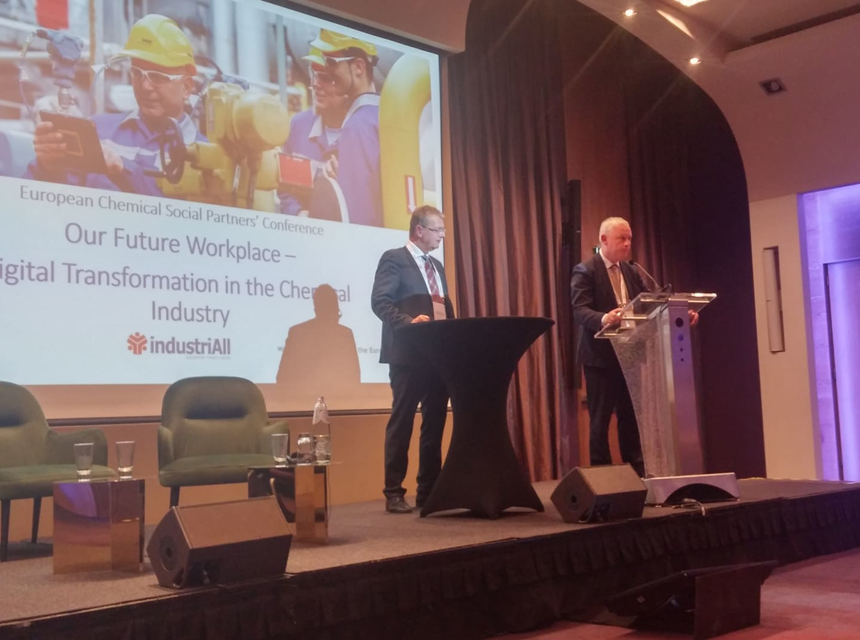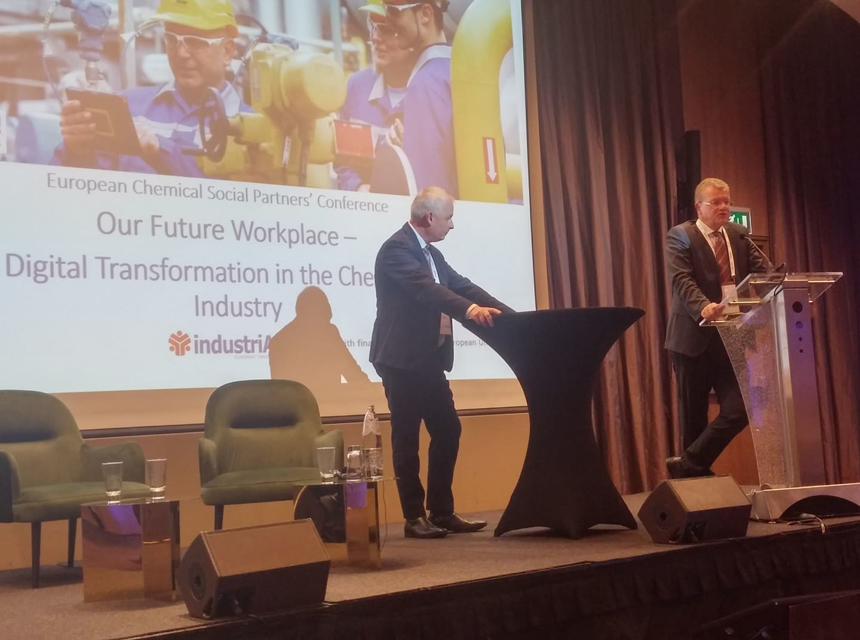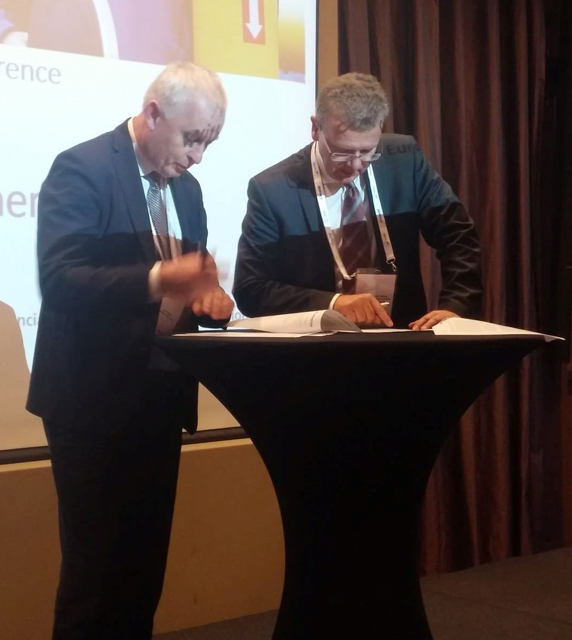We can shape this process together with employers to ensure that these changes will not happen to the disadvantage of workers.
Concluding a two-year project ‘Our Future Workplace – Digital Transformation in the Chemical Industry’, the recommendations call on social partners and their affiliated organisations to engage in a constructive dialogue on:
- mobile working and working-time arrangements
- qualifications
- performance monitoring
- occupational safety
- work-life balance, and
- employee participation
“Change management and the involvement and support of employees are key to a successful transformation” underlined Luc Triangle. “It is good that industriAll Europe and ECEG are committed to tackling the concrete effects of digitalisation together, such as working in mixed and interdisciplinary teams, increasing multitasking and flexibility, and addressing new health and safety concerns.”
The project ‘Our Future Workplace – Digital Transformation in the Chemical Industry’ explored the implications of digitalisation for health and safety, skills and the organisation of work. It found that digitising analogue data and integrating cloud solutions has been accomplished in the European chemical, pharmaceutical, rubber and plastics sectors, in the first wave of digitalisation. The second wave will be driven by the Industrial Internet of Things, artificial intelligence, virtual and augmented reality, and is imminent. This will require advanced digital and transversal skills. Collective agreements should pay greater attention to mobile working, working-time arrangements and qualification. Sensitive issues such as data protection or performance monitoring need to be addressed. Finally, close attention should be paid to the level of psychological stress that all these changes imply.
An extensive online survey among industriAll Europe and ECEG’s members, conducted by the research institute Prognos, formed the basis of the recommendations and identified areas for further investigation.
The social partners of the chemical, pharmaceutical, rubber and plastics industries are determined to continue their work in this area.
Luc Triangle: “New challenges will arise with the introduction of ever more new technology. We will see new tasks, changing working pattern and shifting business models. We can shape this process together with employers to ensure that these changes will not happen to the disadvantage of workers.”
Read the joint recommendations in EN, DE, FR. The full background report and its summary.
Contact senior policy adviser Maike Niggemann for more information or further comment.


